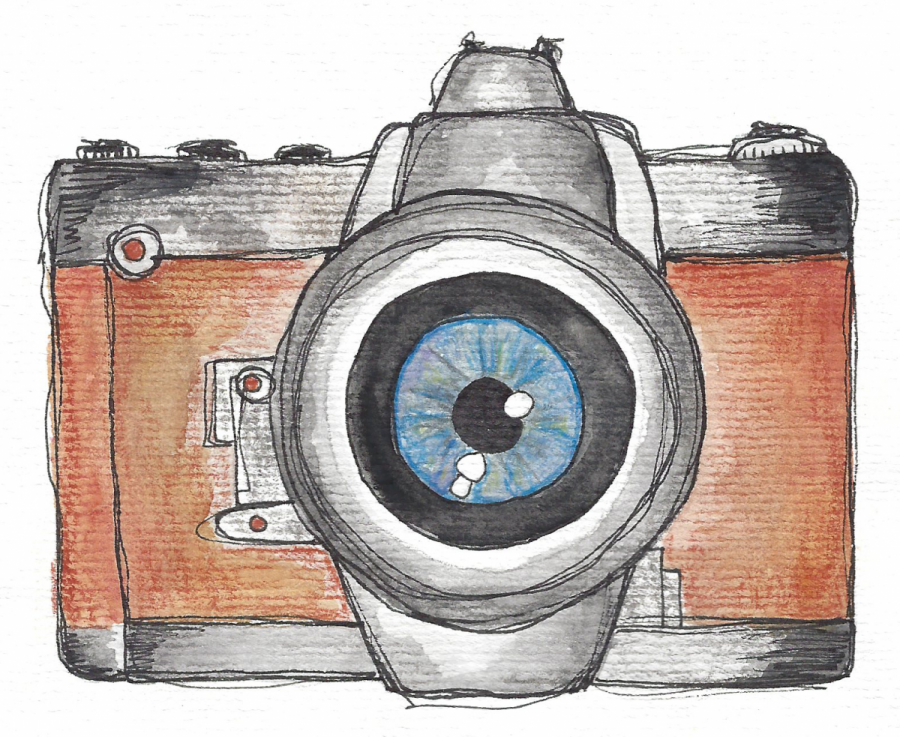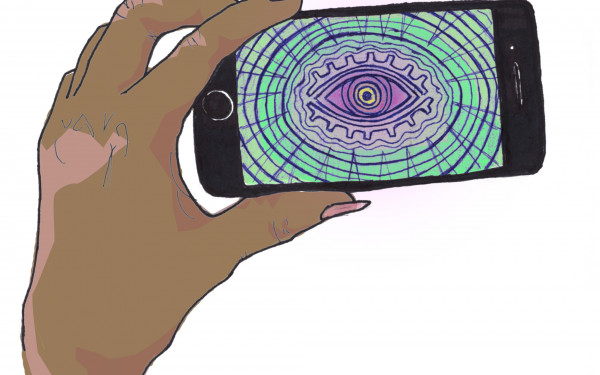Why we’ve progressed past the need for celebrities
The perniciousness of celebrity culture was on full display last year
Even though COVID-19 transcended borders, class, and status, it quickly became crystal clear that the pandemic wasn’t the great equalizer that many suggested it was.
Racialized, poor, and working-class people, for example, were more susceptible to the worst effects of the pandemic than the rest of the population.
Yet, not only did many mass media outlets and celebrities initially attempt to pretend everyone was on a level playing field, they also inadvertently revealed how deeply out of touch they are with the rest of society.
Early on, in March, Gal Gadot rallied a legion of her fellow celebs to sing a poorly edited and flavourless rendition of “Imagine” by John Lennon—many described the video as condescending and useless. Priyanka Chopra posted a video of herself honouring healthcare workers by clapping into the ether. Madonna posted a video of herself speaking about how uniting the coronavirus was whilst seated in a polished tub—rose petals were strewn around her in the silver-tinted bathwater.
The billionaire David Geffen, who was rightfully attacked for showing off his $590-million yacht with the caption “I’m hoping everyone is staying safe,” deactivated his account shortly after the inevitable backlash. When Pharrell asked his fans to donate money, they asked him, a millionaire, to donate it himself.
Jennifer Lopez was criticized for posting a video of her and her family enjoying themselves in the closed-off garden of Alex Rodriguez’s Miami compound. When Ryan Reynolds told everyone to “stay at home, save lives'' from his comfortable loft, people described it as thoughtless. One tweet read, “Girl, people are dying” in response to Cardi B asking her 1.4-million Twitter followers if she should buy a purse for $88,000.
This level of tone-deafness was made even more clear during America’s—and subsequently, the world’s—mid-year uprising against anti-Black racism.
One tragic response that stands out is the two-minute video posted by the actress Sarah Paulson, again with a group of celebrities, all montaged together reciting a script about “accepting responsibility”—watching it felt like watching a dramatic audition for an A24 film.
Again, many saw it as white celebrities centring themselves in a movement that wasn’t entirely about them; many suggested that the celebrities could’ve just donated money or given Black people more opportunities in the filmmaking world instead.
All of this tone-deafness points to one thing: we need to start thinking about the function of celebrities, and whether or not celebrity culture deserves to exist at all.
Celebrity culture, in loose terms, is the world’s collective obsession with the personal lives of celebrities. It also refers to how details of celebrities’ personal lives are consistently disseminated through the media, and thus always in our faces.
It is intertwined with consumer interests—celebrities turn their fame into a commodity. The existence of the culture is validated insofar as people are interested in celebrities and are willing to make accomodations in their own lives in order to take part in celebrities’ lives.
However, the culture, so ubiquitous that it’s become unnoticeable, is proving to do more harm than good. For example, many experts have expressed concern about what this media does to the general population’s mental health.
For example, it’s no secret that many see celebrities and immediately attempt to replicate their lifestyles, appearance, and personalities.
Carla Marie Manly, a clinical psychologist who deals with self-esteem and body image, says in Shape Magazine that “when “perfect” photos of “perfect” celebrities are put on a pedestal as the “ideal” standard, “those who are not able to achieve this truly impossible level of perfection secretly feel ashamed and defective.”
As one body-image specialist, Adrienne Ressier, put it in Shape Magazine: “With reality shows so popular, one can imagine that, with luck, anyone can be a celebrity.” Since everyone can be a celebrity, everyone is expected to be celebrity-worthy.
This goes beyond self-esteem. A study from the United Kingdom suggested that celebrity worship can lead to narcissism—because people aspire to the level of notoriety and importance of their favourite celebrity—and poorer mental health.
Another study, from the British Journal of Psychology, suggested people who increasingly engage with celebrities’ lives slowly begin to disengage with their own. It can also lead to symptoms such as depression, anxiety, somatic symptoms, social dysfunction, and stress.
People who worship celebrities deal with stress by withdrawing from the world around them and living “in a state of denial,” according to the study.
Beyond the detrimental mental health effects and the egregiousness of watching celebrities flaunt their wealth whilst poor people are struggling to afford food and rent, a defining, yet overlooked, characteristic of the culture is that the existence of celebrities is based on a system of exploitation.
Celebrities are the most visible representation of the wealthy class and are, therefore, both affirmers and beneficiaries of the idea of meritocracy.
A meritocracy is a society in which civilians who display superior skills or talents are rewarded with higher social mobility and leadership. In this way, every citizen supposedly has the opportunity to be recognized and advance in proportion to their abilities and accomplishments. This is the society we live in today.
However, meritocracy—initially created as a way to create fairness—has been critiqued for creating the same inequalities it attempts to quell.
Daniel Markovits, the author of The Meritocracy Trap: How America’s Foundational Myth Feeds Inequality, Dismantles the Middle Class, and Devours the Elite uses parental wealth as an example: “Rich parents now invest unprecedented time and money in education, creating a meritocratic inheritance that enables their children to dominate competitions for admission to elite colleges and for elite jobs.”
This unfairness is similarly seen in celebrity culture, where family ties remain an undeniable tool in one’s climb to success. (The Kardashians are the most visible and arguably the most regularly admonished example.)
In the book Against Meritocracy: Culture, Power, and Myths of Mobility, Jo Littler argues that meritocracy is the “key cultural means of legitimation for contemporary neoliberal culture.”
Littler highlights a few notable issues with meritocracy; the first issue is that it endorses a competitive system where, by definition, certain people must be left behind: “The top cannot exist without the bottom,” as she says.
She suggests this leads to a legitimization of inequality, damaging community “by requiring people to be in a permanent state of competition with each other” in order to succeed.
This manifests in the way that the talents of celebrities become less about art—how it can heal and inspire a sense of community in the world—and becomes more about who is more talented than whom, and thus who deserves more attention.
Meritocracy is also dysfunctional because it rests on the idea that talent and intelligence are innate, whilst also ignoring that the ability to climb the social ladder is simply much easier for some than it is for others.
This relates to the idea of how, for many, the title of celebrity has been given to them only because of whom they’re related to—their subsequent success would not be possible without the celebrity status they are born with. This illusion also leaves out people with disabilities who may find it more difficult to succeed in a world with systems that weren’t designed with them in mind.
Perhaps Littler’s most stinging critique is that meritocracy, and therefore celebrity culture, functions as a myth used to obscure and extend economic and social inequalities.
Meritocracy relies on an overemphasis of merit and talent in order to make it appear as if the people in higher-level positions in society earned their place—and that that position shouldn’t be questioned. This overemphasis leads to us being forced to ignore the profound advantages of parental wealth and social location.
Celebrities are thus purveyors of this system. They innocently litter us with pictures of their lavish lifestyles—at the same time, we’re forced to buy into an idea that they are deserving of the riches and of the higher positions they have.
This leads us to collectively accept that only merit and talent are the boosts to success—whilst ignoring the staunch amount of inequality that has to exist for celebrities to be in their hierarchical position in the first place.
Littler offers a small solution: she suggests a complete replacement of the individual success ladder with the less divisive ideas of mutual progress and egalitarianism.
It’s not an overnight process, but beginning the conversation and acknowledging the problem is the first step.
Celebrities do have a large platform that can be used to broadcast important issues and ideas—however, we should start debating whether or not that platform should even exist if it means that one voice can only be heard if a group of others are simultaneously being silenced.
There is currently a catastrophic humanitarian crisis. Numbers of Yemeni children died of hunger whilst we all gleefully welcomed in the new year. UNICEF warns that, due to the effects of the coronavirus, 10,000 additional children will die each month.
On top of that, the United Nations warns that the poverty caused by the pandemic in poor countries carries significant comorbidities.
It predicts 13 million girls being forced into child marriages and two million girls suffering genital mutilations due to interruptions to campaigns against the practice. Diminishing access to contraceptives could lead to 15 million unintended pregnancies. Seventy-two million children could be pushed into illiteracy, according to predictions by the World Bank.
Nicholas Kristof argues in The New York Times that the calamity in poorer countries is due to “indifference” from western countries—we have our rose-colored glasses on.
So when a celebrity posts about their $88,000 purse or their $590-million boat—remember why. It’s not because they worked hard for it and they deserve to show it off. It’s because the wealthy class needs you to pay attention to them—to put all your attention there, instead of to their amassing wealth and to the ensuing destruction that they are catalyzing in the rest of the world.
Indifference in itself is a second pandemic; we cannot afford to sit back and obsess over maintaining the illusion of meritocracy whilst parts of the world are slowly being dilapidated.
Celebrities do not deserve more attention than you; they were just lucky. No amount of hard work or talent justifies the attention we give them—especially when unnecessary attention only makes them wealthier. It’s time we turn our eyes and ears away from them and towards those who need us the most.
This article originally appeared in The Influence/Influenced Issue, published January 13, 2021.







